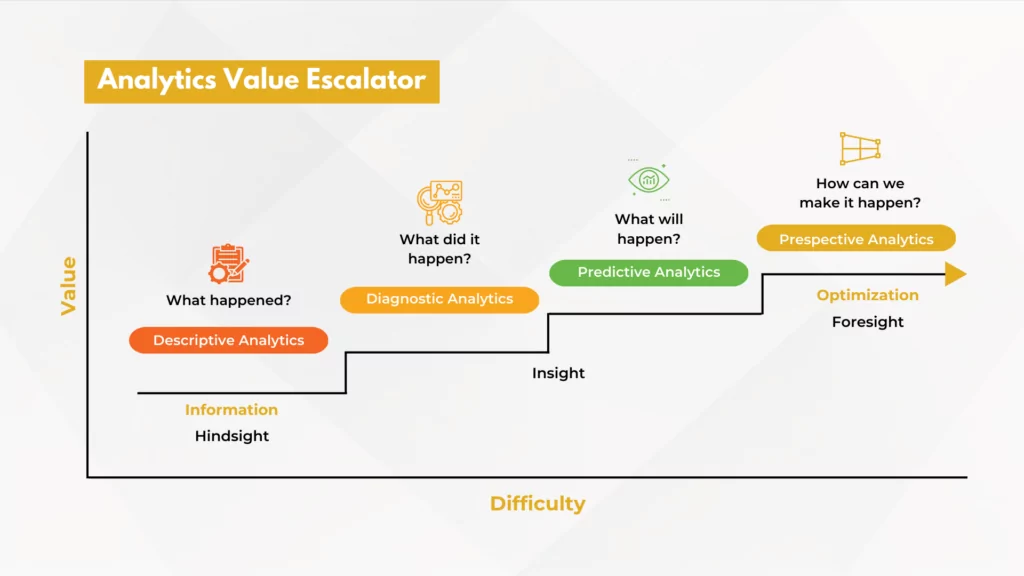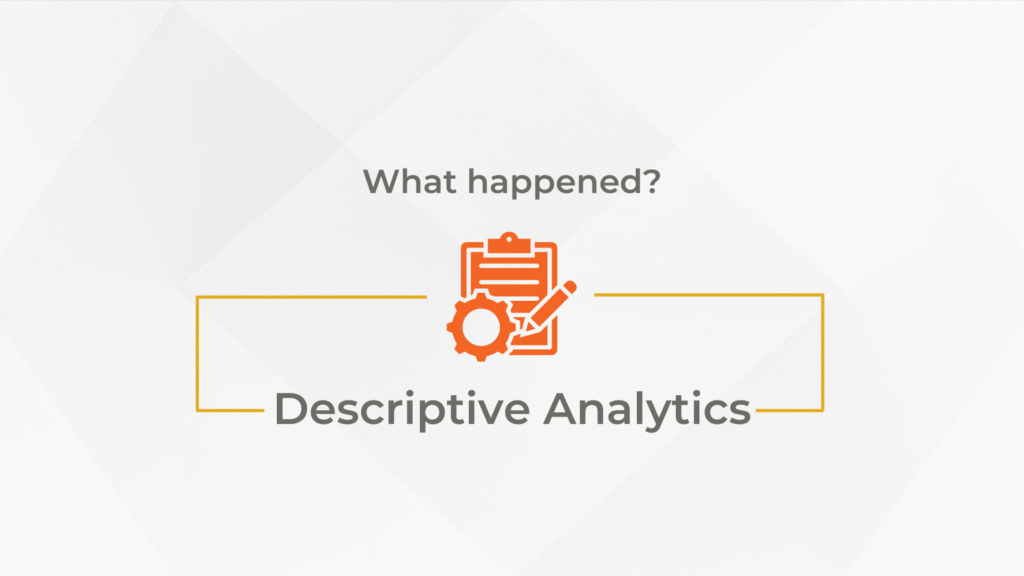Introduction
Companies across the globe are now switching to advanced analytics instead of descriptive analytics. This article highlights what will the future of data analytics looks like along with the new trend and opportunities it unlocks across industries.
Today’s business world has an influx of data and technology. Businesses across the globe are continuously looking to maximize output while minimizing costs. They want to cash in on new trends, explore new markets, create demand, and stay one step ahead of the competition. To do so, they need the right information about their target market at the right time. Modern-day organizations use data for various purposes, but most importantly, for informed decision-making.
However, informed decisions cannot be made based on raw data. Informed decisions are a product of data analytics. Data and analytics are widely recognized as the key to business transformation. Data analytics has already helped many industries find solutions to major pain points and allowed them to make better business decisions.
Types of Data Analytics
Data analytics empowers companies with an improved decision-making process. It helps them answer various questions about their target audience and prevents them from being blind sighted to unexpected industry trends or consumer behavior. There are four basic types of data analytics, descriptive, prescriptive, predictive, and diagnostic. Each type has immense value for a business’s success.

Want to Know How The Future of Data Analytics will Influence Your Business?
We help you make data-driven decisions, optimize operations, and maintain a competitive edge in a rapidly changing market. Secure your business's future with AlphaBOLD's advanced data analytics solutions.
Request a DemoData Analytics Use Case – Looking Back!

Previously, companies would often circle descriptive and diagnostic analysis. However, data usage is continuing to evolve, which means that businesses will also need to change their approach to data. In fact, companies that focus on informed decision-making already find descriptive and diagnostic analytics insufficient for their needs. Such companies then turn to ‘advance analytics’ to cater to their data-oriented requirements.
The Future of Data Analytics is Advanced Analytics:
Advanced Analytics and Marketing:
Advanced Analytics and Warehouse Management:
Another generic use case for advanced analytics is inventory and warehouse management. Inventory/warehouse managers can utilize business intelligence (BI) solutions that include advanced analytics to understand outflows and compare them to existing information, such as previous orders and sales. This will allow them to streamline the order and inventory management in real time.
Advanced Analytics and Manufacturing:
Making the Move from Descriptive to Advanced
With so many groundbreaking implications of advanced data analytics, it only makes sense for organizations to leverage it. Even though transitioning to advanced analytics is a top priority for most organizations, it is not that simple to make this move. If a company wishes to take its analytics game to an advanced level, it probably requires the ‘right’ data.
Are You Prepared for the Future of Data Analytics?
Request a demo today to see how our solutions can drive your data strategy forward.
Request a DemoConclusion
An average organization in 2022 will have over 200 applications, which will continue to increase as the technology evolves. Data silos are a big problem for enterprises as they impact the time a company will take to fetch data from its source to an analytical tool. If a company is forced to act on incomplete data based on time limitations (which happens in a competitive market), it will not make informed decisions. Businesses need access to datasets that can help them easily understand and find customer trends, new demographics, and even acquisition channels. Companies need these insights fast and can no longer wait on an internal IT team to handle the data smog issues that arise from within the organization itself. This is where data analytics engineers can help companies get faster, deeper, and more actionable insights.
At AlphaBOLD, we think along new levels of data science, data visualization, and AI models to develop a data engineering and analytics strategy that breaks information silos for result-oriented decision-making. Our data engineering and analytics experts combine technology, ideas, and skills to move data through data pipelines smoothly. This enables our customers to move effortlessly through operational efficiency, revenue generation, and better customer relationships.
Are you ready to explore data engineering and analytics? Talk to our experts to learn more about our products and services today!
Explore Recent Blog Posts








